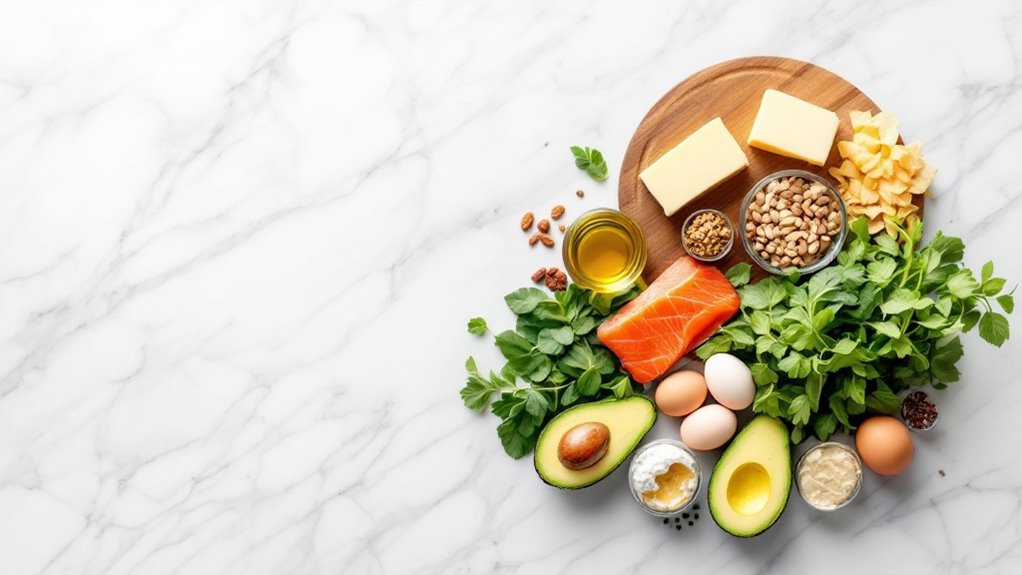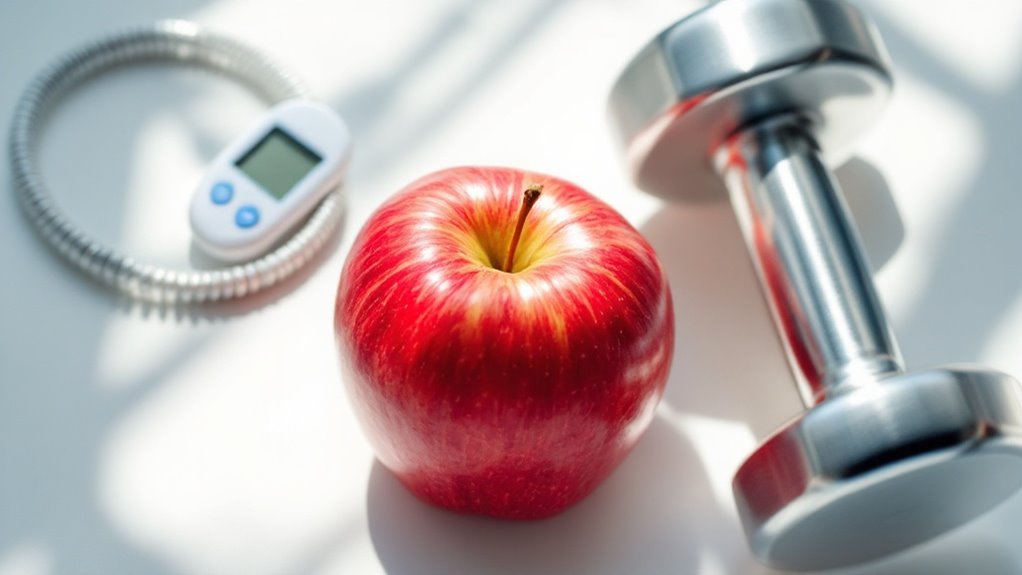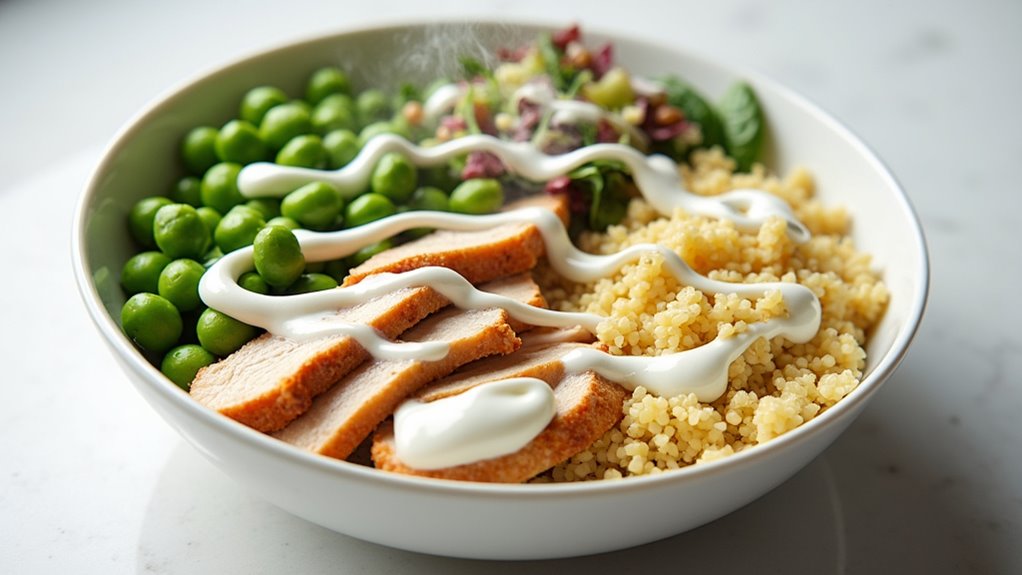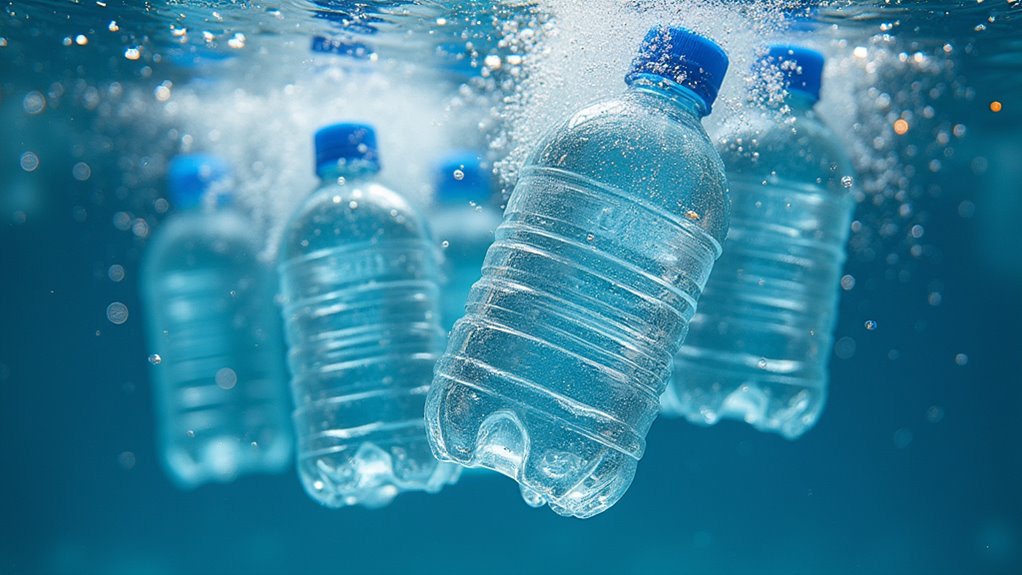Successfully following a keto diet requires more than just counting carbs. Common mistakes include rushing into ketosis without proper planning, ignoring nutrient-dense foods, and failing to prepare for keto flu symptoms. Smart dieters focus on quality fats, maintain electrolyte balance, and stick to 20-50 grams of carbs daily. Proper meal planning and medical consultation are essential. The secret to avoiding risks? There’s an art to doing keto right.
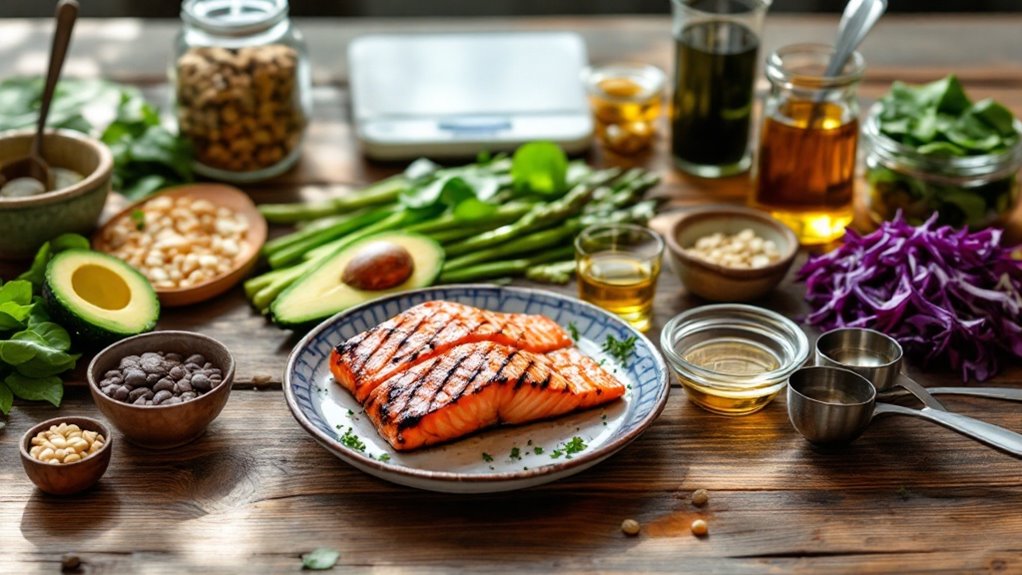
While the keto diet promises rapid weight loss and increased energy, it’s not as simple as loading up on bacon and butter. The reality is, successful ketosis requires precise planning and careful attention to macronutrient ratios. We’re talking about limiting carbs to a measly 20-50 grams per day while ramping up fats to 55-60% of daily calories. And no, you can’t just plunge in headfirst. Experts recommend keeping the diet short-term only, typically around 3-6 months.
Let’s get real about the dreaded keto flu – that lovely period when your body throws a tantrum while switching from carbs to fat for fuel. Headaches, fatigue, and brain fog? Yeah, that’s your body’s way of saying “what the heck?” But here’s the thing: proper preparation can minimize these symptoms. Loading up on electrolytes isn’t optional – it’s essential. And water? Drink it like it’s your job. Many dieters experience increased mental clarity once they adapt to ketosis.
Smart keto dieters know it’s not just about hitting those magical ketone levels. Quality matters more than numbers on a test strip. Loading up on processed “keto-friendly” foods while ignoring nutrient-dense options is a rookie mistake. Think beyond the bacon – incorporate nutrient-rich foods like eggs, spinach, and fatty fish. Your body will thank you later. Carefully reading food labels can help you avoid hidden carbs that might kick you out of ketosis.
Meal planning isn’t just for the obsessively organized. It’s your lifeline when those carb cravings hit at 10 PM. Stock your pantry with keto-approved foods and prep meals ahead. Because let’s face it – nobody makes good food choices when they’re hangry and desperate.
Before jumping on the keto bandwagon, have a chat with your doctor. This isn’t just another fad diet – it’s a significant metabolic shift. Start slowly, especially with fat intake. Your digestive system isn’t used to processing that much fat, and trust us, you don’t want to learn this lesson the hard way.
Focus on gradual adaptation, adequate sleep, and stress management. Remember, keto is a marathon, not a sprint. And yes, that means you can’t outrun poor planning with ketone supplements and motivation alone.
Frequently Asked Questions
Can I Drink Alcohol While Following a Keto Diet?
Yes, alcohol consumption is possible on a keto diet – with some major catches.
Stick to zero-carb spirits like vodka, gin, or whiskey. Dry wines work too.
But watch those mixers! Regular sodas and fruit juices are diet-killers.
Here’s the kicker: alcohol hits harder on keto, and the body prioritizes metabolizing it over fat.
Smart drinking means moderation and careful carb counting.
How Long Does It Take for the Body to Enter Ketosis?
Entering ketosis typically takes 2-4 days, but there’s no one-size-fits-all timeline.
It’s all about depleting those glycogen stores. Some lucky folks get there faster, while others need more time.
Metabolism, activity level, and carb intake play huge roles.
Want to speed things up? Keep carbs under 20-50 grams daily, stay active, and don’t go crazy with protein.
Your body will get the message eventually.
Are There Any Specific Medications That Interfere With Ketosis?
Several medications can throw ketosis completely off track.
Steroids and insulin are major culprits – they mess with blood sugar levels.
Even common over-the-counter meds like cough syrup and NyQuil pack hidden sugars that’ll kick you right out of ketosis.
Psychiatric drugs and beta-blockers can also interfere.
And those sugar-loaded liquid medications? They’re basically keto kryptonite.
Always check with a doctor before mixing meds and keto.
Should I Continue Keto During Pregnancy?
Healthcare providers strongly advise against following keto during pregnancy. Period.
The diet’s severe carb restrictions can lead to nutrient deficiencies that may harm fetal development. No joke – birth defects are a real risk.
Plus, pregnant women need those complex carbs for energy and brain development.
Want what’s best for the baby? Stick to a balanced diet with plenty of fruits, veggies, and whole grains. Those cravings exist for a reason.
Can I Follow a Vegetarian or Vegan Keto Diet?
Both vegetarian and vegan keto diets are possible, but they’re tricky to execute.
Vegetarians have it easier, thanks to eggs and dairy products – lifesavers for hitting those fat and protein goals.
Vegans face a tougher challenge. They’ll need to lean heavily on avocados, nuts, coconut oil, and tofu. Careful planning is essential.
Supplements are non-negotiable, especially for B12 and omega-3s. Not impossible, but definitely not a walk in the park.
